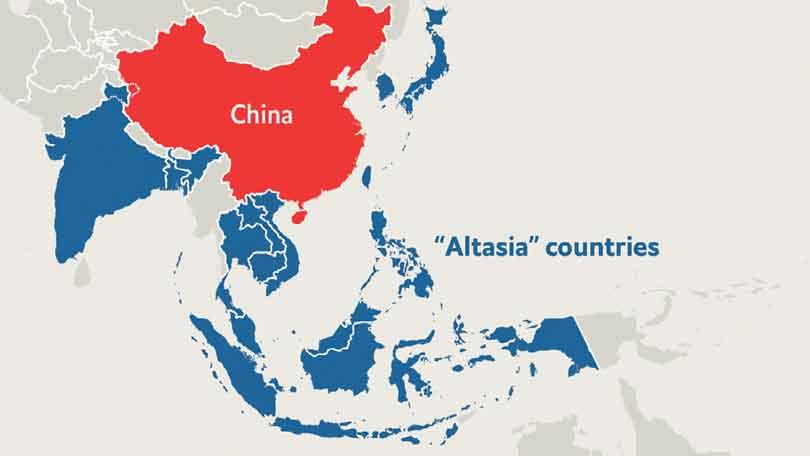Reply To:
Name - Reply Comment

 The experiences of East Asian and Southeast Asian countries such as Malaysia, Vietnam and Thailand, show that foreign direct investment (FDI) into export-oriented sectors is critical to accelerate growth in manufactured exports. But, compared to these countries, Sri Lanka has a poor track record of attracting foreign direct investment (FDI). The total yearly FDI inflows into Sri Lanka have remained below USD 1 billion for decades.
The experiences of East Asian and Southeast Asian countries such as Malaysia, Vietnam and Thailand, show that foreign direct investment (FDI) into export-oriented sectors is critical to accelerate growth in manufactured exports. But, compared to these countries, Sri Lanka has a poor track record of attracting foreign direct investment (FDI). The total yearly FDI inflows into Sri Lanka have remained below USD 1 billion for decades.
In contrast, during the last decade, the average annual FDI in Malaysia was USD 10 billion, Thailand USD 9 billion, and Vietnam USD 12 billion. With an annual FDI track record of over USD 2 billion, even the Least Developed Countries (LDCs) in the region, such as Cambodia and Bangladesh, fare better than Sri Lanka.
Sri Lanka has known for a considerable time that the difficulty of accessing land, a basic requirement for any investment, is a key bottleneck investors face in Sri Lanka.
For example, enterprises surveyed by the World Bank in 2011 identified access to land as the most critical challenge faced when investing in Sri Lanka.
Industrial zones, specifically export processing zones (EPZs), have been the blueprint for many East and Southeast Asian countries to create industrial land suitable for investments within a short period. These zones offer multiple benefits, such as pre-allocated land, reliable utility services, better road and port connectivity and unified customs services, eliminating the many infrastructure gaps and bureaucratic hurdles investors face in developing countries.
When Sri Lanka embarked upon an export-oriented investment drive in the 1980s it followed the same path and invested in EPZs.
Today, it has 15 operational EPZs. However, a study by the Harvard Center for Development Studies in 2016 found that the country’s EPZs were operating at nearly full capacity. In the largest zones, namely in Katunayake, Biyagama, Koggala, Seethawaka, Horana and Mirigama, less than 10% of the land was vacant.
Promises made, not kept
Despite having identified the problem more than a decade ago, to this day, the Sri Lankan government has failed to address it. An Auditor General report from 2020 stated that the country had failed to invest in any new EPZ since 2002. This is not due to a lack of plans or proposals to do so, but due to the failure of the Government to implement the proposed plans.
The Auditor General’s report, for example, stated that proposals to build EPZs have been made since 2014. However, during the last twenty years, the BOI has only opened the first phase of one such proposed EPZ in Bingiriya (158 acres). This was opened in 2020, fifteen years after its foundation stone was laid.
Numerous promises to create EPZs/Industrial parks were also made in several budget speeches presented by the Minister of Finance. The 2017 budget speech proposed to develop free trade zones near expressway corridors with the private sector. The 2018 speech proposed to establish an industrial park in Milleniya with a USD 500 million investment from Rojana Industries of Thailand. The 2023 speech proposed to establish New Economic Zones in various provinces.
A dashboard run by Verité Research that tracks the progress of budget promises, housed under publicfinance.lk platform, reveals that these promises didn’t go beyond the planning stages.
The 2020 Auditor General’s report found many blunders even during the planning stage. For example, the Government spent billions of rupees to build infrastructure facilities without completing land acquisition, wasting public funds. The progress of the latest proposal made in 2023 remains unknown. The Right to Information request filed in August 2023 by Verité Research to determine the progress during the first six months has not received a response to date.
A laggard in the region
Many other countries in the region that compete with Sri Lanka not only have more land but have made far more progress than Sri Lanka in converting available land to industrial land suitable for investors.
For example, Vietnam’s special economic zones have expanded from 65 in 2000 to 397 by 2023. It also has ambitious plans to increase the number of zones to 558 within the next 10 years. Similarly, neighbouring countries in South Asia are getting in on the action. Bangladesh aims to establish 100 economic zones by 2030, with 97 approved, 10 already in operation and 30 under development.
The others in the region are moving beyond the traditional zones and are investing in eco-industrial parks (EIPs). For example, Vietnam has partnered with UNIDO to develop the technical guidelines for EIPs. The country plans to transform its existing industrial zones into EIPs, an effort towards meeting its net zero emissions target by 2050.
EIPs have surged globally, from fewer than 50 in 2000 to about 250 in 2018, in response to growing concerns about the climate impact of manufacturing.
Unlike Sri Lanka, these countries have also successfully used public-private partnership models to develop and manage industrial land without being entirely dependent on government coffers.
Benefitting from emerging opportunities
The current shifts in global supply chains further south in response to geo-political risks offer Sri Lanka a new opportunity to attract export-oriented FDI. To make supply chains more resilient to geopolitical risks, firms are looking for new investment locations to diversify their supply base and reduce over-reliance on China. South Asia and Southeast Asia have emerged as attractive destinations for these investors.
The Economist magazine coined the term ‘ALTASIA’ to map out 14 countries in South and Southeast Asia, including India and Bangladesh, which it believes have the highest potential to accommodate such investments. Sri Lanka is notably absent from this map.
Addressing the key bottlenecks the investors face, such as access to industrial land, is a vital first step for Sri Lanka to seize these emerging opportunities and position itself as a competitive player in ‘ALTASIA’.
The Minister of Finance (who is also the President of Sri Lanka) will deliver yet another budget speech next month. To attract investments and boost exports, it is critical that the minister goes beyond merely promising to fix the problem in his speech, and focuses on fulfilling the promise he makes.
Subhashini Abeysinghe is a Research Director at Verité Research and Mathisha Arangala is a Lead Economist at Verité Research. They can be reached via [email protected]